WhatsApp CRM refers to integrating the popular messaging application WhatsApp into customer relationship management (CRM) strategies and systems. As a messaging platform used by over 2 billion people worldwide, WhatsApp presents invaluable opportunities for businesses to reach and engage customers (Kemp, 2023). Recent surveys show that 67% of consumers prefer messaging a business rather than calling, making messaging apps prime channels for customer service (Twilio, 2022).
Recognizing this, more companies have introduced WhatsApp support and communication over the last few years. WhatsApp Business, a specialized enterprise app, now has over 1 million monthly active users (Mehta, 2022). Integrating such tools with CRM software centralizes vital customer data and conversations across sales teams, enabling more personalized and impactful outreach. Seamless transitions between messaging and workflows like payments or ticket generation also become possible.
As a trusted platform already extensively used for personal communication, WhatsApp delivers strong potential for streamlined CRM. Companies can strengthen connections with existing customers while attracting new ones by meeting their preference for app-based messaging.
The integration enables quicker responses, valuable data collection, and superior overall customer experiences. Let's get started with WhatsApp CRM.
What is WhatsApp CRM?
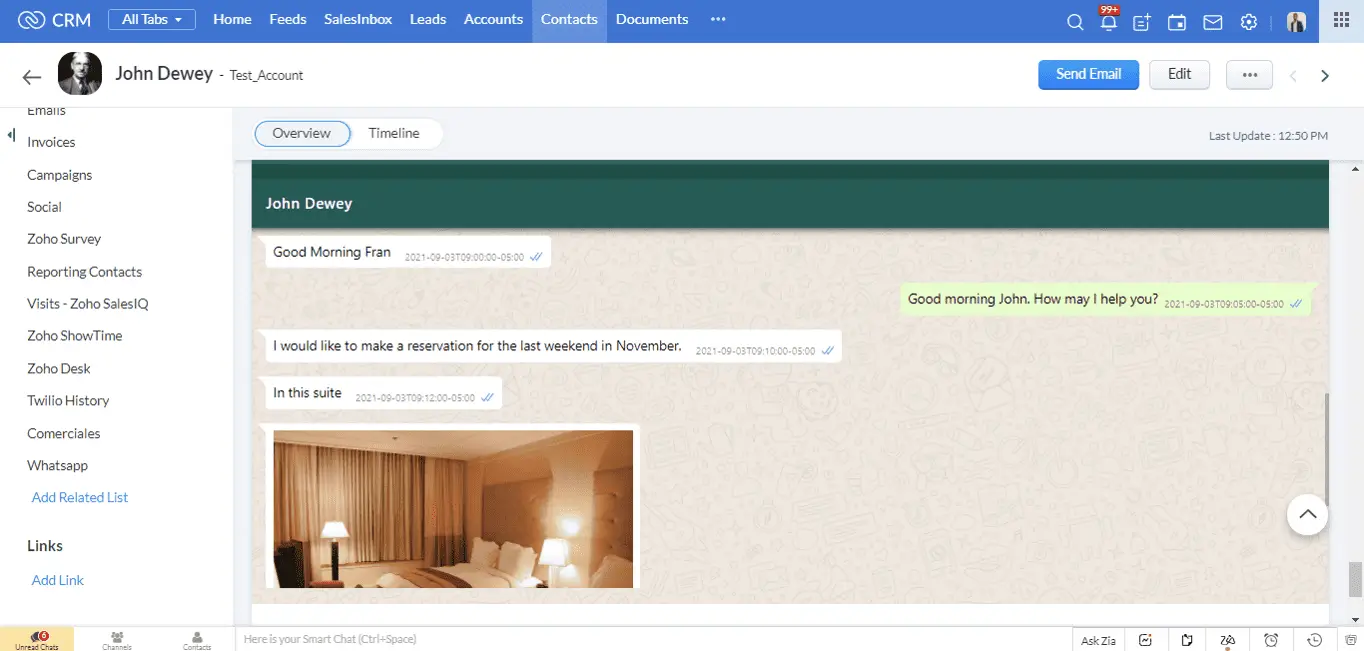
WhatsApp Integrated CRM, also known as WhatsApp CRM, refers to the integration of WhatsApp with a customer relationship management (CRM) system. It allows businesses to leverage the power of WhatsApp messaging to streamline their customer interactions and improve customer service. By integrating WhatsApp with their CRM, businesses can centralize their customer communications, automate processes, and provide personalized experiences to their customers.
Benefits of WhatsApp CRM
Using WhatsApp CRM offers several benefits for businesses such as enhanced engagement, streamlined customer interactions, etc. Let's explore some of them:
Enhanced Customer Engagement
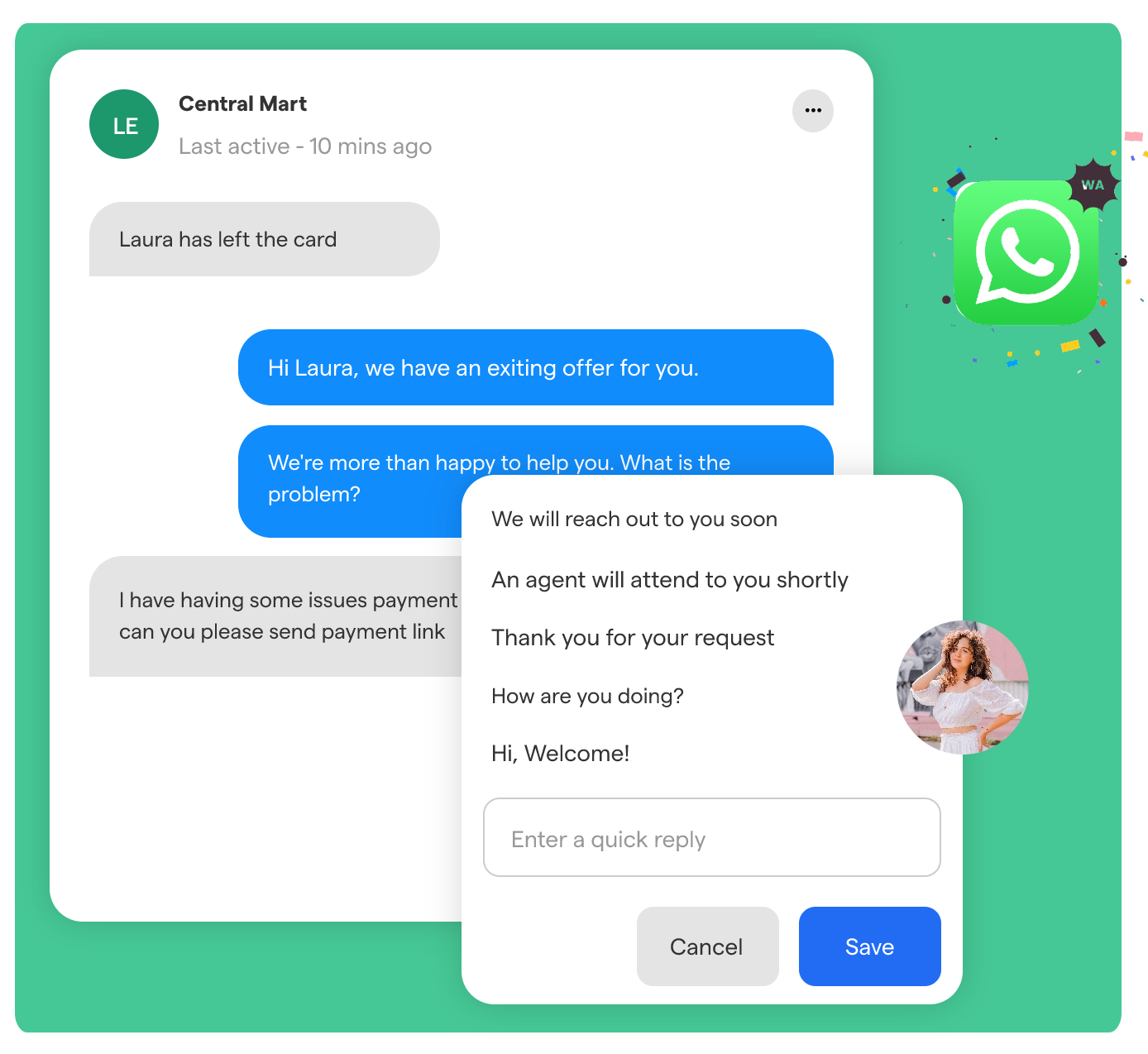
WhatsApp is one of the most popular messaging apps, with billions of active users worldwide. By integrating WhatsApp with their CRM, businesses can tap into this extensive user base and engage with their customers directly on a platform they already know. This not only increases customer reach but also enhances engagement and responsiveness.
Centralized Customer Communications
With WhatsApp CRM, businesses can streamline their customer communications by centralizing all conversations within their CRM system. This eliminates the need to switch between different platforms or devices, making it easier for employees to manage and track customer interactions.
By having all customer data and conversations in one place, businesses can provide more personalized and efficient service.
Automation and Workflow Optimization
Integrating WhatsApp with a CRM system enables businesses to automate various processes and workflows. For example, they can set up automated responses for frequently asked questions, send automated notifications, and trigger follow-up actions based on specific customer interactions.
This saves time and resources, allowing businesses to focus on high-value tasks and improve overall efficiency.
For example, BotPenguin a free custom chatbot development platform aces in providing CRM integrations that include popular CRM platforms like ZOHO, Hubspot, Salesforce, Insightly, and many more.
With the combined benefits of CRM and Chatbots, BotPenguin makes automation services like lead generation and customer support more effective by unifying marketing and sales efforts in one place:
- Marketing Automation
- WhatsApp Automation
- Customer Support
- Lead Generation
- Facebook Automation
- Appointment Booking
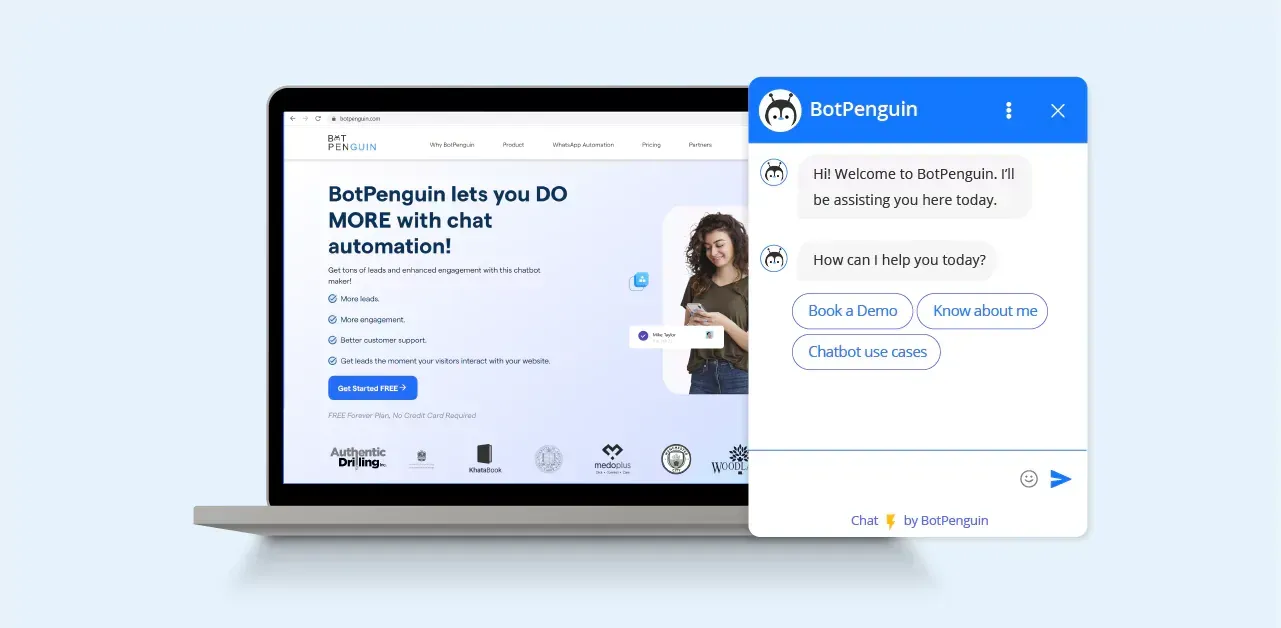
Improved Customer Service
WhatsApp CRM facilitates faster response times and seamless customer service. With notifications and alerts in place, businesses can ensure prompt replies to customer queries, leading to increased customer satisfaction.
Moreover, the ability to access previous conversation history and customer details within the CRM system enables employees to provide more personalized and relevant support to customers.
Analytics and Insights

Integrating WhatsApp with a CRM system provides businesses with valuable analytics and insights. They can track and measure metrics such as response times, message volumes, customer satisfaction ratings, and conversion rates.
These insights can help businesses identify areas for improvement, optimize their customer service strategies, and make data-driven decisions to enhance overall performance.
Cost-Effective Communication
In comparison to traditional communication channels like phone calls or SMS, WhatsApp CRM offers a cost-effective solution for businesses. With WhatsApp's lower costs and the ability to handle multiple conversations simultaneously, businesses can reduce communication expenses while still maintaining high-quality customer interactions.
Increased Conversion Rates
By leveraging the power of WhatsApp CRM, businesses can significantly increase their conversion rates. With personalized and timely messages, businesses can nurture leads, guide customers through the sales funnel, and ultimately convert them into loyal paying customers.
By leveraging WhatsApp's multimedia capabilities, businesses can also showcase their products or services more effectively, resulting in higher conversion rates.
Features of WhatsApp Integrated CRM
WhatsApp Integrated CRM offers a range of powerful features that can revolutionize how businesses interact with their customers. Let's explore some of the key features:
Seamless Integration
With WhatsApp Integrated CRM, businesses can seamlessly integrate WhatsApp messaging into their existing CRM system. This ensures that all customer conversations and data are centralized in one place, making it easier for employees to manage and track interactions.
Two-Way Messaging
WhatsApp Integrated CRM allows for two-way messaging, enabling businesses to have real-time conversations with their customers. Employees can receive customer inquiries, provide support, and engage in personalized conversations directly through the CRM system. This feature enhances customer engagement and responsiveness.
Automated Responses
Automated responses are another valuable feature of WhatsApp Integrated CRM. Businesses can set up predefined responses for frequently asked questions or specific triggers, such as order confirmations or shipping updates. This automation saves time and ensures consistent and prompt customer service.
Notifications and Alerts
WhatsApp Integrated CRM provides the ability to set up notifications and alerts for incoming messages. Businesses can receive instant notifications on their CRM dashboard or through email, enabling them to respond quickly to customer inquiries and provide timely support.
Suggested Reading:
Multimedia Capabilities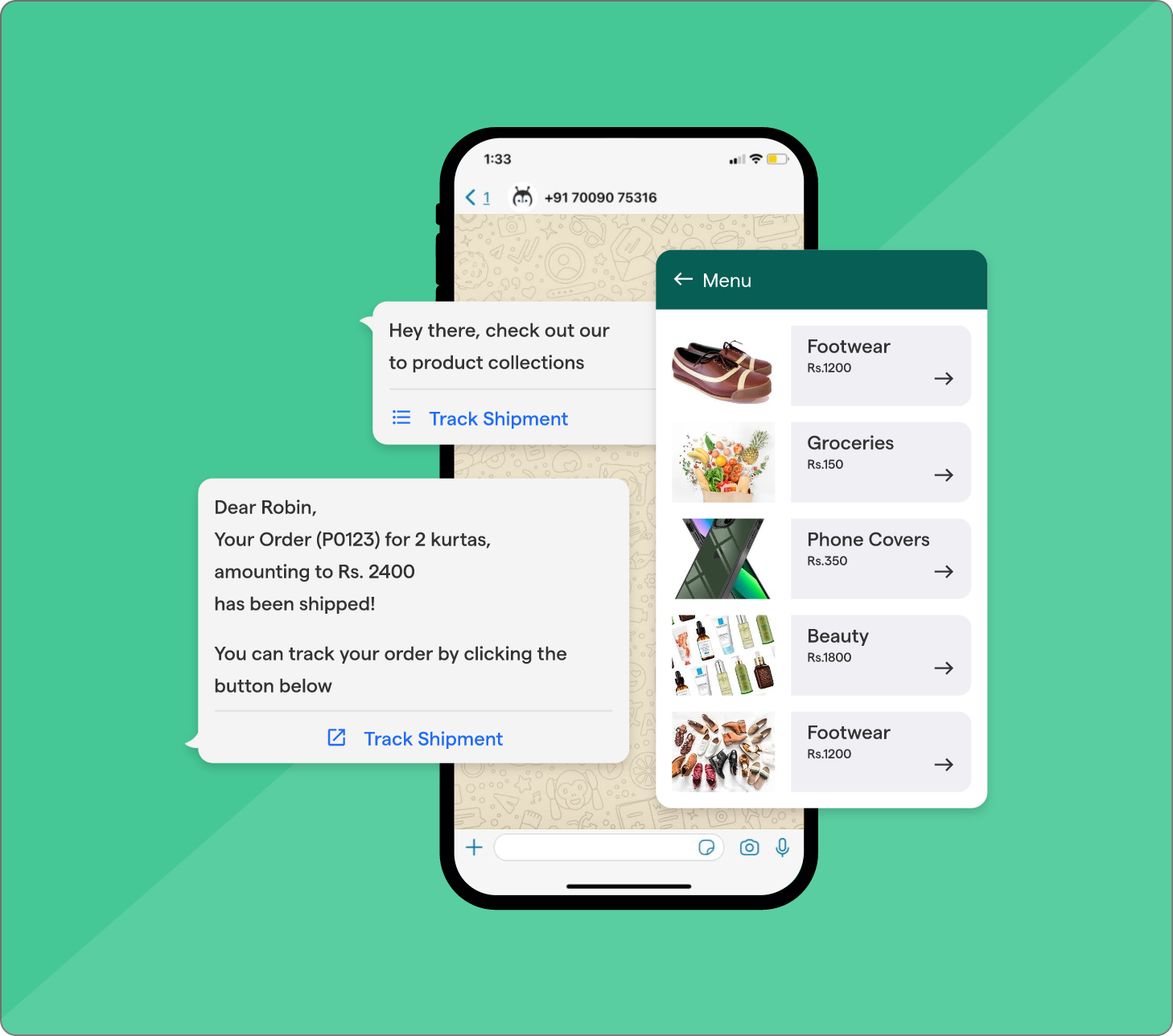
WhatsApp's multimedia capabilities can be leveraged within the CRM system. Businesses can send images, videos, and documents to customers, showcasing their products or providing additional information. This feature enhances the customer experience and allows for more interactive and engaging conversations.
Customer Segmentation
WhatsApp Integrated CRM allows businesses to segment their customer base based on various criteria such as purchase history, preferences, or demographics. This segmentation enables businesses to send targeted messages and offers to specific customer groups, increasing the effectiveness of their marketing efforts.
Conversation History
With WhatsApp Integrated CRM, businesses have access to the complete conversation history with each customer. This ensures continuity of customer service and provides employees with a context for personalized interactions. Employees can easily refer to previous conversations and understand customer preferences or specific needs.
Analytics and Reporting
WhatsApp Integrated CRM provides valuable analytics and reporting features. Businesses can track metrics such as message volumes, response times, customer satisfaction ratings, and conversion rates. These insights help businesses measure the effectiveness of their customer service strategies and make data-driven decisions to improve performance.
Workflow Automation
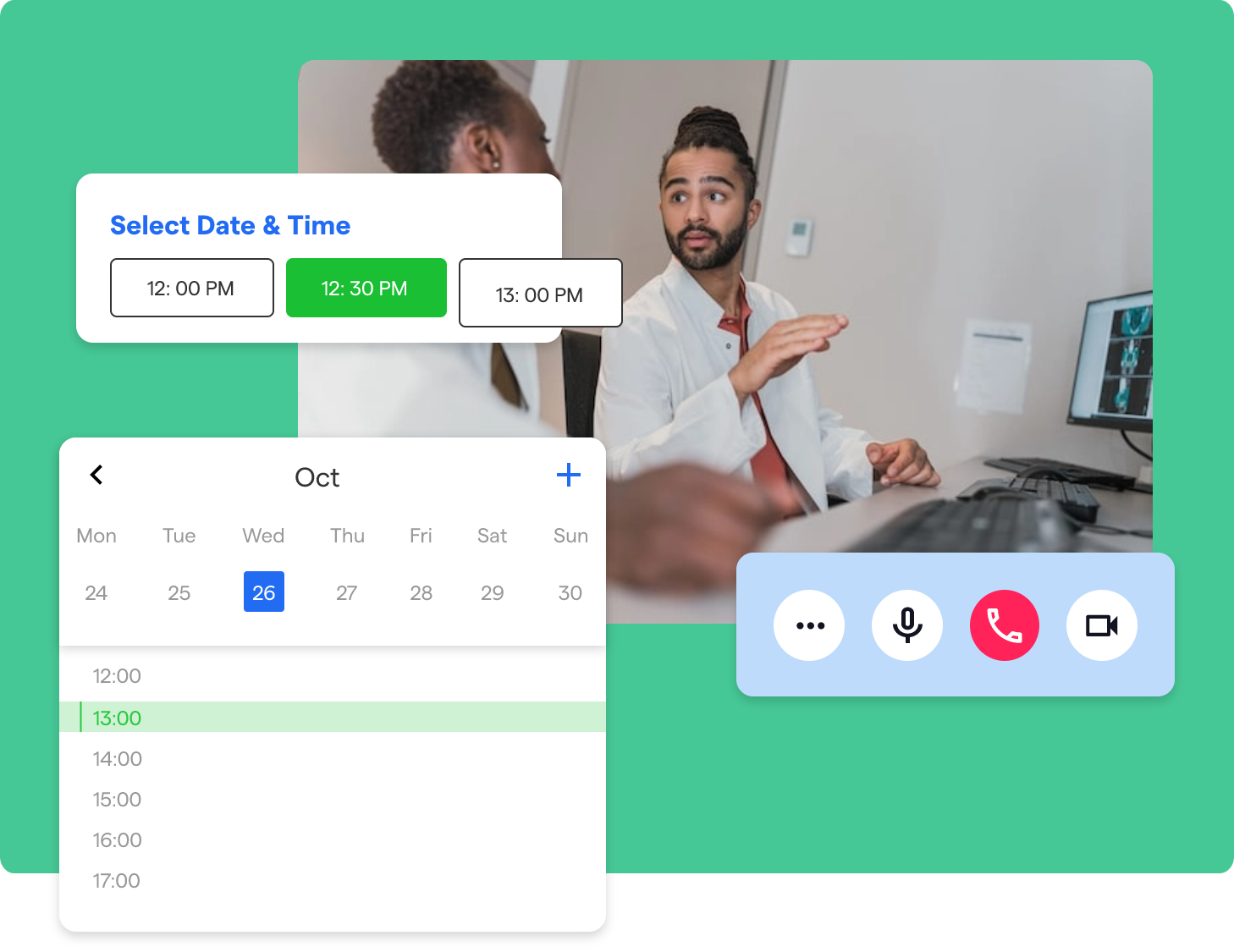
The workflow automation feature of WhatsApp Integrated CRM enables businesses to automate repetitive tasks and streamline processes. For example, businesses can automate follow-up actions after a customer inquiry, assign tasks to specific team members, or integrate with other systems to trigger specific actions based on WhatsApp interactions.
Security and Privacy
WhatsApp Integrated CRM ensures the security and privacy of customer data by adhering to strict privacy policies and encryption standards. Information shared through WhatsApp is encrypted, providing a secure environment for customer interactions.
Suggested Reading:
Implementing WhatsApp CRM in Your Business
Implementing WhatsApp CRM can greatly improve customer interactions and streamline your business processes. To get started, follow these steps:
Set up WhatsApp API Integration with your CRM system
Integrating WhatsApp API with your CRM system is the first step towards implementing WhatsApp CRM. This integration allows you to centralize all customer conversations and data in one place. Here's how you can do it:
- Choose a WhatsApp Business Solution Provider: Select a reliable WhatsApp Business Solution Provider that offers an API integration with your CRM system. Ensure that the provider complies with WhatsApp's guidelines and provides the necessary support.
- Obtain WhatsApp Business Account: Create a WhatsApp Business Account and get it verified by WhatsApp. This is an essential step as it allows you to use the WhatsApp API for business purposes.
- Configure API Integration: Work with your chosen provider to configure the API integration between WhatsApp and your CRM system. They will help you set up the necessary endpoints, authentication, and data mapping.
- Train and Onboard Your Team: Once the API integration is complete, it's crucial to train and onboard your team to effectively use WhatsApp CRM.
- Familiarize with WhatsApp Features: Ensure that your team members are familiar with the features and capabilities of WhatsApp CRM. Train them on how to send messages, manage conversations, and access customer data within the CRM system.
- Define Communication Guidelines: Establish clear guidelines for customer communication via WhatsApp CRM. Define response times, tone of voice, and expectations for customer interactions. This ensures a consistent and professional approach across your team.
- Role-Based Training: Provide role-based training to different team members based on their responsibilities. For instance, sales representatives may need training on lead nurturing, while customer support agents may require training on issue resolution.
Best Practices for Adoption
To maximize the benefits of WhatsApp CRM, it's important to follow best practices for adoption within your business. Consider the following:
- Personalization and Context
Encourage your team to personalize customer interactions and provide context by referring to previous conversations or customer details. This creates a more tailored and customer-centric experience.
- Timely and Proactive Communication
Promptly respond to customer inquiries and be proactive in reaching out to customers when necessary. Timely communication shows your commitment to customer service and helps build trust and loyalty.
- Automate where possible
Leverage automation features of WhatsApp CRM to streamline processes and save time. Automate responses to frequently asked questions, send automated notifications, and set up workflows for follow-up actions.
- Monitor Analytics and Adapt
Regularly monitor analytics and metrics provided by WhatsApp CRM to gain insights into customer engagement and performance. Use this data to identify areas for improvement and adapt your strategies accordingly.
Use Cases of WhatsApp CRM
WhatsApp CRM offers a wide range of use cases for businesses across different industries. Let's explore some common use cases and how WhatsApp CRM can be leveraged in each scenario.
E-commerce: Order updates and customer support
WhatsApp CRM provides e-commerce businesses with an effective way to communicate order updates and offer customer support. Here's how it can be utilized:
- Order Updates: Send automated notifications to customers regarding their order status. Inform them about order confirmations, shipment tracking, and delivery updates. This proactive communication keeps customers informed and reduces the need for them to reach out for updates.
- Customer Support: Provide quick and personalized customer support via WhatsApp. Customers can directly message the business with any queries or issues they may have, and support representatives can provide prompt assistance. WhatsApp CRM centralizes all customer interactions, making it easier to manage and track customer support requests.
Service-based businesses: Appointment scheduling and reminders
Service-based businesses can benefit from using WhatsApp CRM to schedule appointments and send reminders to customers. Consider the following use cases:
- Appointment Scheduling: Allow customers to schedule appointments via WhatsApp. Provide a dedicated WhatsApp number or chatbot that can guide customers through the process of selecting a suitable time slot. This simplifies appointment scheduling for customers and improves efficiency for the business.
- Reminders: Send automated appointment reminders to customers a day or hours before their scheduled appointment. This decreases the chances of no-shows and allows customers to reschedule if needed. WhatsApp CRM enables businesses to easily manage reminders and provide exceptional service.
Sales and Marketing: Lead generation and nurturing
WhatsApp CRM can be a powerful tool for lead generation and nurturing, enabling businesses to engage with potential customers and convert them into paying customers. Explore the following use cases:
- Lead Generation: Use WhatsApp as a channel to capture leads. Offer customers the option to start a conversation via WhatsApp to inquire about products or services. This initiates a direct interaction that can be followed up by the sales team.
- Lead Nurturing: Continue nurturing leads through personalized conversations using WhatsApp CRM. Share relevant information, provide product recommendations, and address any concerns or questions. By building these relationships, businesses can increase the chances of converting leads into loyal customers.
Customer Support: Issue resolution and feedback collection
WhatsApp CRM is an excellent platform for providing customer support and collecting feedback. Implement the following use cases to enhance customer satisfaction:
- Issue Resolution: Customers can reach out to businesses via WhatsApp with any issues or concerns they may have. Support representatives can address these queries in a timely manner, ensuring prompt resolution. WhatsApp CRM helps track and manage support requests, ensuring that no customer query goes unanswered.
- Feedback Collection: Gather valuable feedback from customers by sending follow-up messages after a purchase or support interaction. WhatsApp CRM allows businesses to create automated feedback collection workflows, making it easy to capture and analyze customer sentiment.
Suggested Reading:
How to Boost Your Sales & Customer Service with WhatsApp CRM
Future Trends in WhatsApp CRM
WhatsApp CRM has become an essential tool for businesses to efficiently communicate with their customers, provide support, and streamline operations. As technology continues to evolve, we can expect exciting future trends that will further enhance the capabilities of WhatsApp CRM. In this article, we will explore two major trends to watch out for:
Expansion of Features and Functionalities
WhatsApp CRM has already evolved from simple text messaging to include features like automated notifications and chatbots. In the future, we can expect further expansion of features and functionalities to empower businesses.
- Enhanced Media Support
Currently, WhatsApp CRM allows businesses to send text messages, images, and documents. However, we can expect increased support for audio and video files. This will enable businesses to send tutorial videos, product demos, and audio messages, providing customers with more engaging and interactive experiences.
- In-App Payments
An emerging trend is the integration of payment solutions within WhatsApp CRM. This will allow customers to make payments directly within the WhatsApp conversation, simplifying the purchasing process. Businesses can enjoy increased conversion rates and capitalize on the growing popularity of digital payments.
Integration with AI and Machine Learning
Integrating AI and machine learning with WhatsApp CRM will revolutionize customer interactions, support, and engagement. Here are some areas where AI integration will drive future trends:
- Smart Recommendations
AI algorithms can analyze customer behavior, preferences, and purchase history to provide personalized product recommendations. By integrating AI with WhatsApp CRM, businesses can offer tailored suggestions and upsell opportunities to customers, enhancing their shopping experience and boosting sales.
- Automated Customer Support
AI-powered chatbots can handle routine customer queries, provide instant responses, and offer self-service options. These bots can understand natural language, learn from previous interactions, and promote conversational experiences. Integrating AI and machine learning with WhatsApp CRM can significantly improve customer support efficiency and reduce response times.
- Sentiment Analysis
By analyzing user conversations, AI algorithms can identify customer sentiments and emotions. This can help businesses understand customer satisfaction levels, detect potential issues, and take proactive measures to enhance customer experience. WhatsApp CRM integrated with AI can provide real-time sentiment analysis, allowing for prompt actions and improved customer retention.
Conclusion
In summary, integrating the widely-used messaging platform WhatsApp into customer relationship management strategies has tremendous benefits for enhancing business-customer interactions. As outlined, over 2 billion global users already rely on WhatsApp for personal communication. Tapping into those high usage rates by meeting customer preferences for app messaging over calling builds stronger connections.
As more businesses now use WhatsApp Business to centralize communication data into their CRM platforms, it would power more personalized, impactful customer experiences and enable convenient transitions between conversations and actions like payments. As more companies realize the immense potential of WhatsApp CRM, over 67% of consumers may soon prefer messaging businesses instead of calling them.
By conveying relevant data about WhatsApp's dominance as a messaging choice and its growing integration with enterprise CRM software, BotPenguin demonstrated how this platform is primed to transform customer experiences. Companies stand to gain more insight and responsiveness through app-based conversations integrated into their systems.
Thanks to these consumer-focused best practices facilitated by WhatsApp CRM, business relationships can flourish.
Suggested Reading:
Frequently Asked Questions (FAQs)
Which CRM works with WhatsApp?
Several CRMs like HubSpot, Salesforce, and Zoho CRM offer integrations or APIs allowing synchronization with WhatsApp for streamlined customer management.
Is WhatsApp a CRM tool?
WhatsApp itself isn't a CRM tool but can be integrated with CRMs to facilitate customer interactions, support, and sales processes.
How can I use WhatsApp Business for CRM?
WhatsApp Business provides features like labels, automated messages, quick replies, and chat lists, allowing businesses to manage customer interactions effectively for CRM purposes.
What is the meaning of CRM in WhatsApp?
CRM in WhatsApp refers to utilizing the platform for managing customer relationships, including communication, engagement, support, and sales, to enhance overall customer satisfaction and retention.


